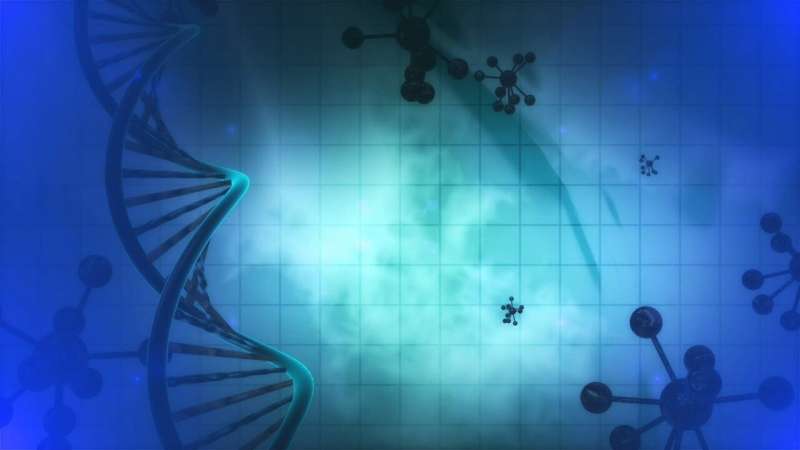
A form of gene therapy currently used to treat Parkinson’s disease may dramatically reduce alcohol use among chronic heavy drinkers, researchers at Oregon Health & Science University and institutions across the country have found.
The study in nonhuman primates showed that implanting a specific type of molecule that induces cell growth effectively resets the brain’s dopamine reward pathway in animals predisposed to heavy drinking. The gene therapy procedure involves brain surgery, and may be useful in the most severe cases of alcohol use disorder.
“This was incredibly effective,” said co-senior author Kathleen Grant, Ph.D., professor and chief of the Division of Neuroscience at OHSU’s Oregon Primate National Research Center, or ONPRC.
The study published today in the journal Nature Medicine.
The implanted virus is not harmful and carries a gene that codes for the protein known as glial-derived neurotrophic factor, or GDNF. It was injected in a specific area of the brain of a group of rhesus macaque monkeys that voluntarily and heavily drink ethanol diluted in water. After four macaques underwent the procedure, researchers found their consumption dropped by more than 90% compared with a control group.
“Drinking went down to almost zero,” Grant said. “For months on end, these animals would choose to drink water and just avoid drinking alcohol altogether. They decreased their drinking to the point that it was so low we didn’t record a blood-alcohol level.”
GDNF is known as a growth factor—meaning it stimulates cells to rapidly increase in number—which enhances the function of neurons in the brain that synthesize dopamine, a feel-good chemical released in the brain. In the case of alcohol use disorder, chronic drinking decreases the release of dopamine.
“Dopamine is involved in reinforcement of behavior, and in people finding certain things pleasurable,” Grant said. “Acute alcohol use can increase dopamine. However, by drinking it chronically, the brain adapts in such a way that it decreases the release of dopamine. So when people are addicted to alcohol, they don’t really feel more pleasure in drinking. It seems that they’re drinking more because they feel a need to maintain an intoxicated state.”
Researchers enhanced dopamine by delivering GDNF to an area of the brain where dopamine is located.
Veterinarians at the ONPRC used magnetic resonance imaging to guide the insertion of GDNF, using an adeno-associated virus in the ventral tegmental area of the brain. The adeno-associated virus is a single-stranded DNA virus that does not cause disease in its subject. The procedure is already used in adult patients with Parkinson’s disease and in children to treat a rare genetic disorder known as aromatic L-amino acid decarboxylase deficiency that, among other symptoms, causes difficulty with movement.
The results were dramatic.
“The monkeys that were treated with this gene permanently started overexpressing dopamine and they decreased their drinking substantially,” Grant said.
Alcohol use disorder and deaths related to alcohol remains a significant problem in the United States and around the world, with an estimated 140,000 deaths annually from alcohol-related causes, according to the National Institute on Alcohol Abuse and Alcoholism of the National Institutes of Health. The estimated worldwide annual death toll is estimated at 2.4 million.
The new study describes a form of treatment that permanently alters the brain through surgery, so the therapy would be limited to those with the most severe forms of alcohol use disorder, Grant said.
“It would be most appropriate for people who have already shown that all our normal therapeutic approaches do not work for them,” she said. “They are likely to create severe harm or kill themselves or others due to their drinking.”
Krystof S. Bankiewicz, M.D., Ph.D., of the University of California, San Francisco and The Ohio State University, is co-senior author along with Grant.
More information:
GDNF gene therapy for alcohol use disorder in male non-human primates, Nature Medicine (2023). DOI: 10.1038/s41591-023-02463-9 , www.nature.com/articles/s41591-023-02463-9
Provided by
Oregon Health & Science University
Citation:
Study shows promise of gene therapy for alcohol use disorder (2023, August 14)
retrieved 14 August 2023
from https://phys.org/news/2023-08-gene-therapy-alcohol-disorder.html
This document is subject to copyright. Apart from any fair dealing for the purpose of private study or research, no
part may be reproduced without the written permission. The content is provided for information purposes only.









